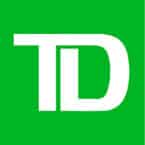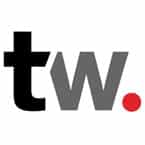Best Stock Brokers For Beginners
Are you new to stock trading and feel overwhelmed by the sheer amount of options available when it comes to brokers and trading platforms?
Got no idea if you should choose a complex stock trading broker/platform that ‘has it all’ or start out with a simpler and more easy-to-use alternative?
No worries, we got you covered. Below is a list of what we consider to be the best stock brokers for beginners in which we list the pros and cons of each.

TD Ameritrade
Rating: 5 stars
Fees: $0 stock fees
Account Minimum: $0
Margin Account: Yes
Pros: $0 stock/ETF commissions, a full featured trading platform for all experience levels (both traders/investors), multiple account types, solid trading/investing education & great customer support.
Cons: Higher margin rates than other competitors, no crypto trading
Our Quick Take: Out of all the stock brokers and trading platforms out there, the TD Ameritrade Think or Swim platform is one of our favorites, and the one personally used by Chris Capre (Head of 2nd Skies Trading & Investing). The simplicity of the platform, along with tools to help you find and analyze stock trades, make this a 5 star in our book. It is our all-around best platform out there for beginner to seasoned stock traders, and is also great for active traders alongside long term investors. Overall, it’s the most balanced platform and brokerage out there that really does it all and thus gets our highest rating.

WeBull
Rating: 4.25 Stars
Fees: $0 stock fees
Account Minimum: $0
Margin Account: Yes (accounts >$2000)
Pros: Excellent/Flexible mobile platform, solid web platform, cheaper margin rates and no account minimums.
Cons: Limited account types, still building its educational resources, some data feeds have monthly fees, more suitable for active traders.
Our Quick Take: For active traders looking to trade on mobile or web based applications, WeBull has one of the better and more flexible platforms out there (superior to Robinhood in our view). You can also trade a fair amount of crypto offerings (10), forex pairs (10) alongside loads of stocks. On a platform to platform basis, we find it stronger than Robinhood. For new to intermediate traders, WeBull offers a solid platform, but seasoned pros may want a more sophisticated offering. Overall a solid multi-asset broker platform for active traders.

Robinhood
Rating: 4.15 Stars
Fees: $0 stock/ETF fees
Account Minimum: $0
Margin Account: Yes (accounts >$2000)
Pros: Easy to use mobile trading app, fractional shares, crypto offerings and solid education
Cons: No phone customer support (big negative IMO), mobile & web app only, and no IRA accounts.
Our Quick Take: Robinhood is designed to be a simple/easy to use mobile platform for completely new stock traders. While we applaud them for ushering in the $0 commissions era, and easy to use mobile platform, they have had many missteps along the way (Gamestop debacle, app outages, still no customer phone support, and gamification tools which can potentially make the app addictive). They do offer fractional shares (a positive in our view), but the mobile or web based app is a bit too simplistic. Anyone with any decent trading or investing experience will feel the platform lacks solid tools, charting or features. For completely new stock traders however, this is the easiest way to go. For anyone else, eventually you will feel the limitations of their platform, technology and customer support.

Tastyworks
Rating: 4 Stars
Fees: $0 stock fees
Account Minimum: $0
Margin Account: Yes (accounts >$2000)
Pros: Built by professional traders, solid educational offerings, available in a wide range of countries outside of the US
Cons: Primarily focused on option traders and leans towards the active trader vs long term investor, margin rates are not the best, and not for beginners
Our Quick Take: A great platform for option traders, but limited for traders looking to primarily trade stocks. Their margin interest rates are ‘ok’, so not the cheapest, nor the most expensive, but long term investors may not find this platform their top option and their stock research is lacking. Despite the shortcomings for stock traders, the fact that they accept applications from many countries outside of the US makes them a good alternative for traders looking to actively trade US stocks without fees/commissions.

Features we want in our best stock brokers
The Platform: In the beginning, choosing a platform that’s intuitive and easy to use is a good place to start. While more seasoned traders and investors may prefer TD Ameritrade’s Thinkorswim platform or Tastyworks, both of which are more complex and offer advanced features, newer traders and investors will want to consider the easier brokers like WeBull and Robinhood. The platform is a key piece of technology you will use, so make sure it has all the features you want and is easy to use.
Commissions & Fees: Simply put, the fees and commissions you pay to take any trade, is taking from your potential profits and adding them to your losses. Active traders have different needs vs long term investors so make sure you understand your stock brokers commissions and fees when it comes to trading stocks.
Resources & Customer Support: How much educational content does your broker offer? That is an important question for understanding the broker platform and building your knowledge in trading stocks. A broker that offers more resources means less time you have to spend searching online for the answer, and that matters to us.
On top of this, whether your broker offers customer support or not, and how accessible it is also matters. It’s your money parked with a broker, so naturally, you’re going to want answers and support from time to time. How much support and how accessible that support is matters to us, and we believe it should for you as well.

